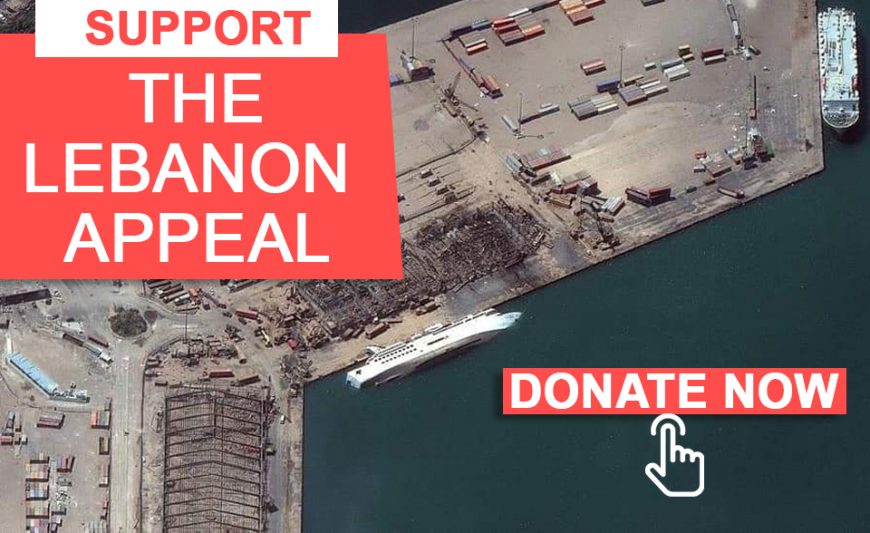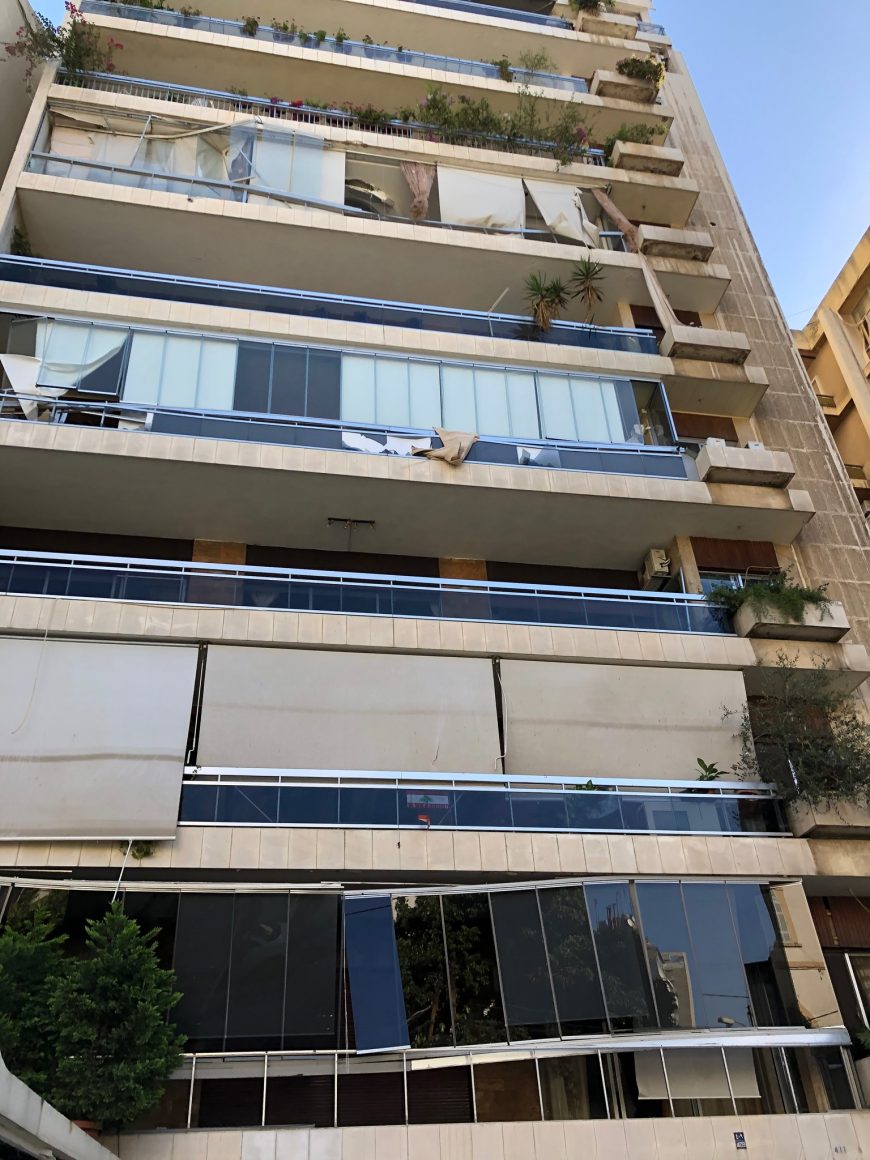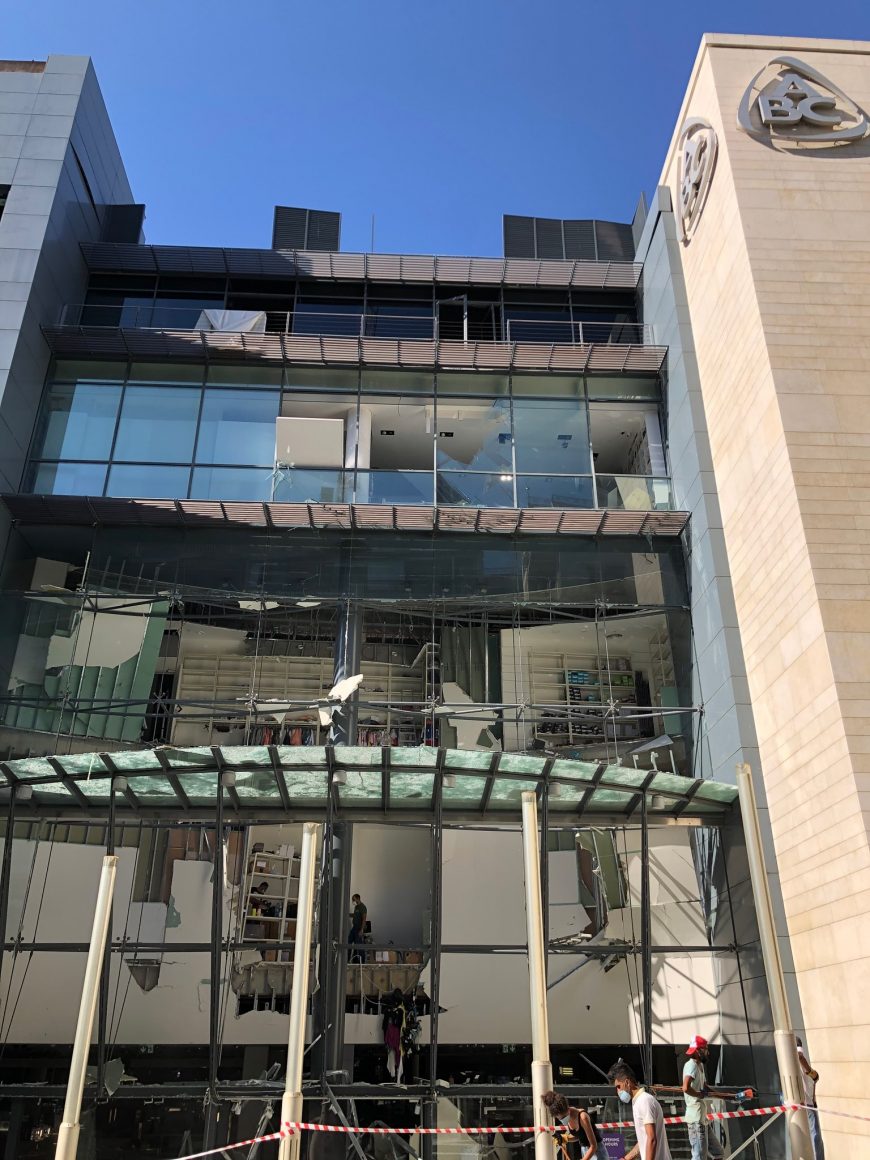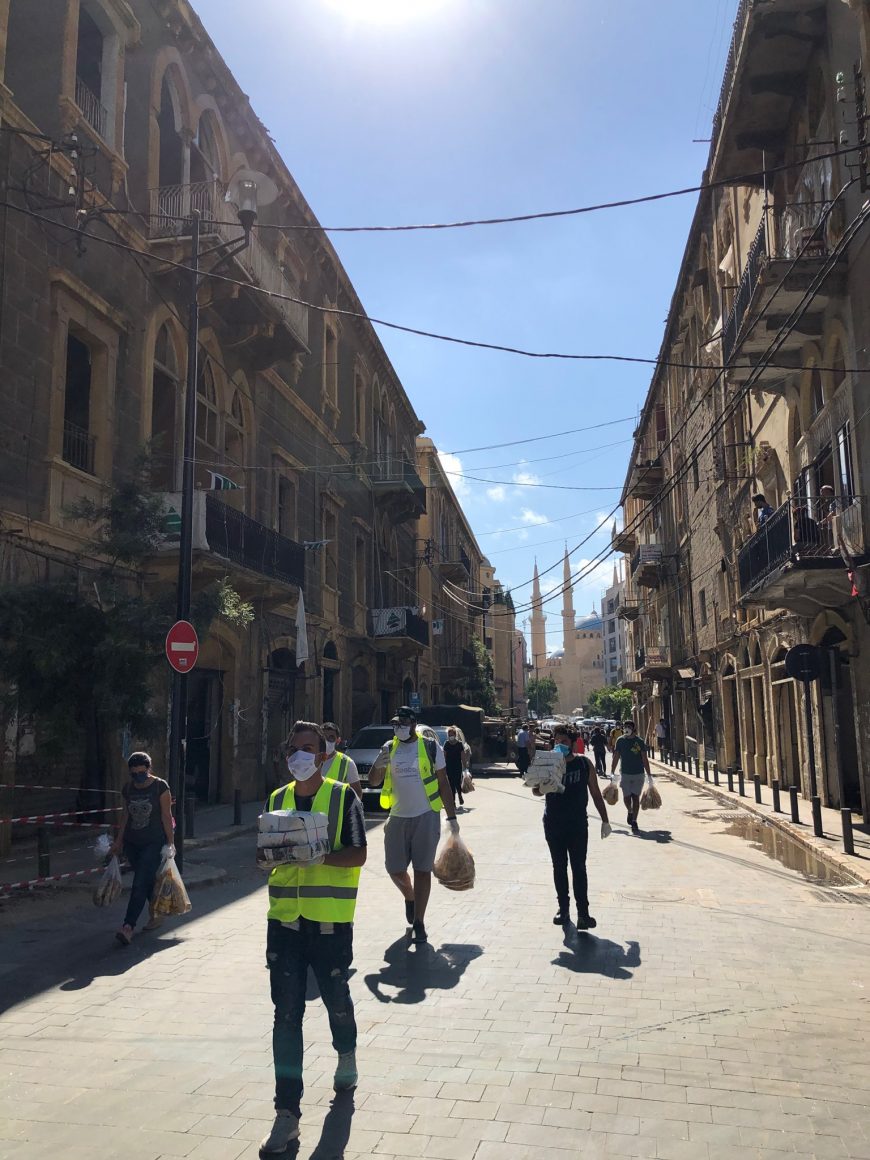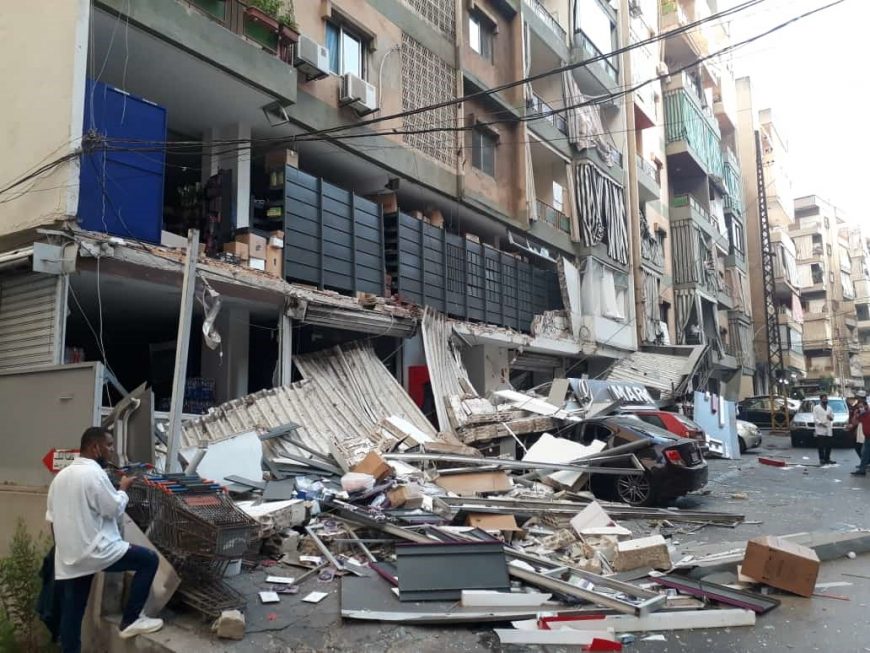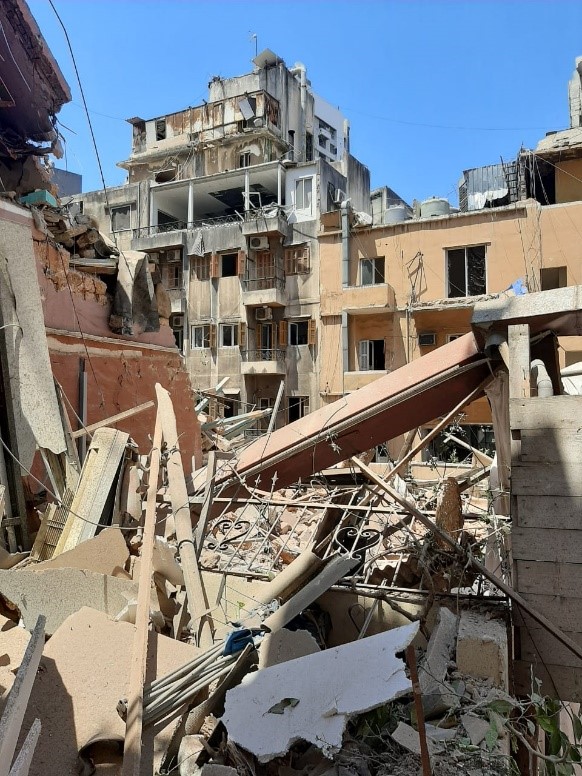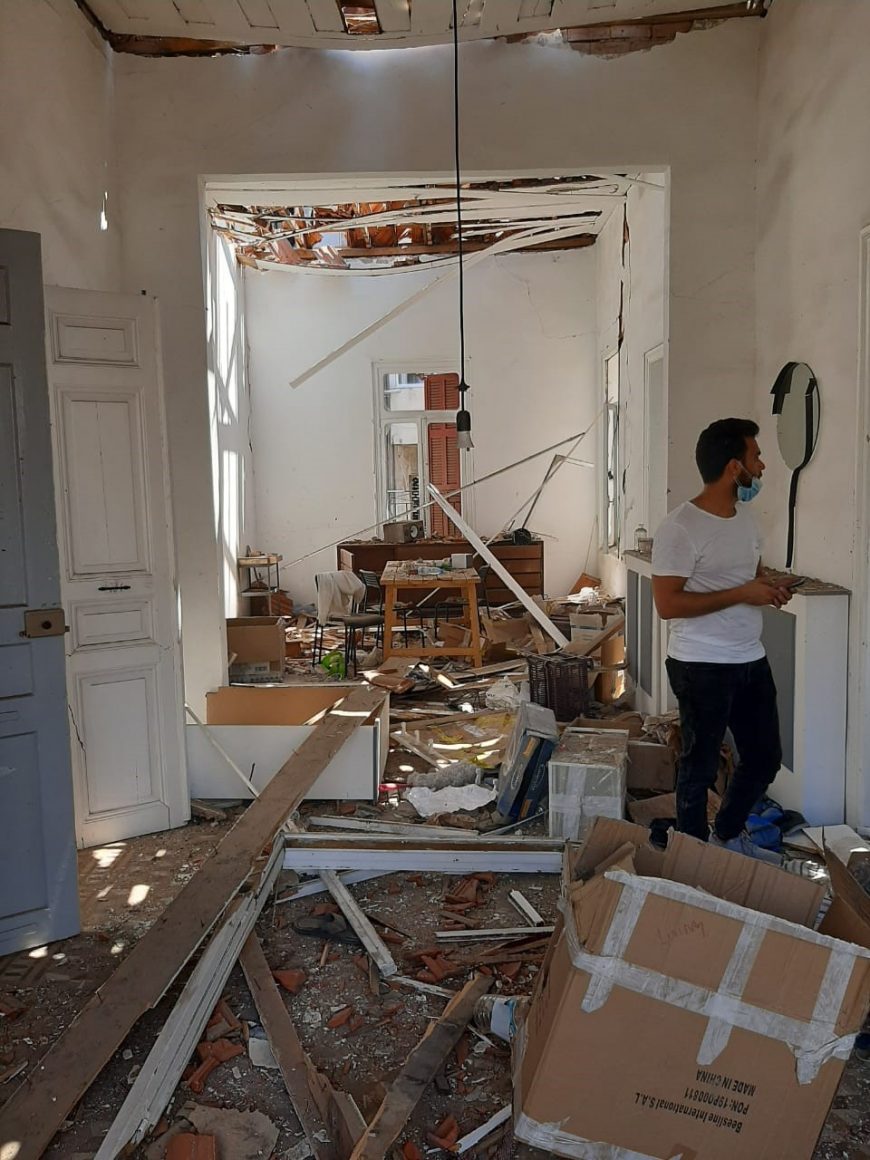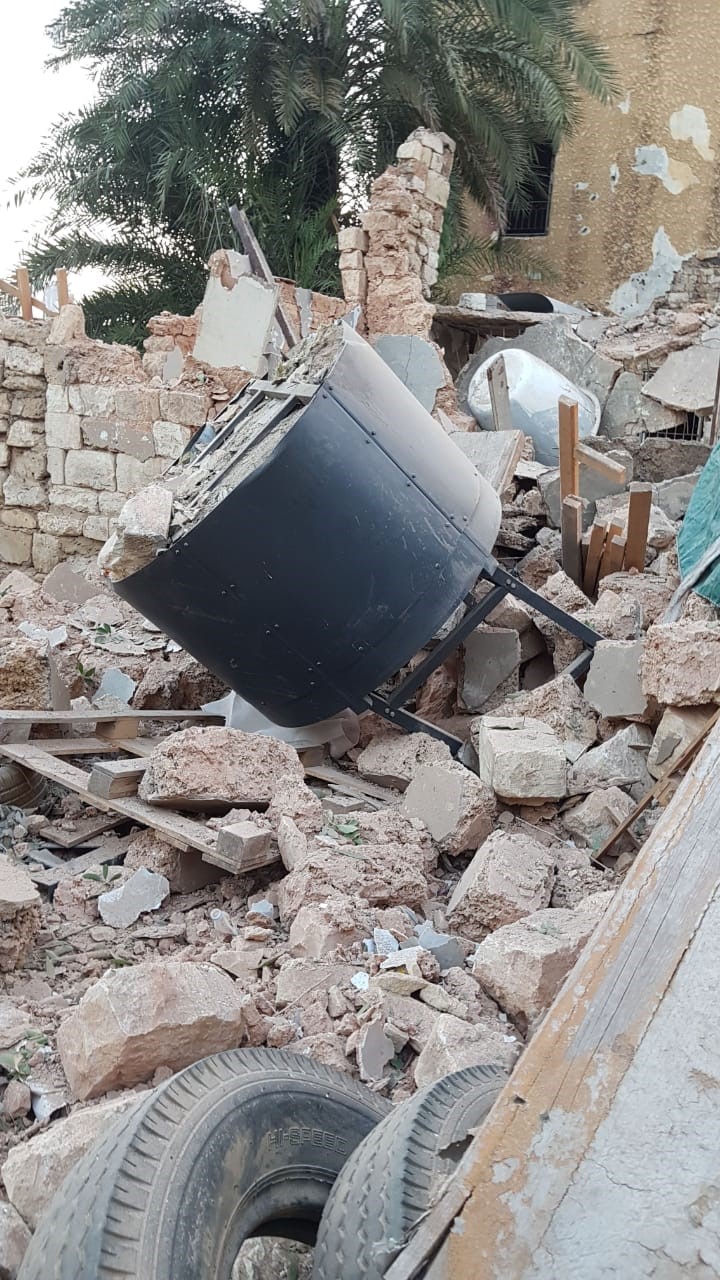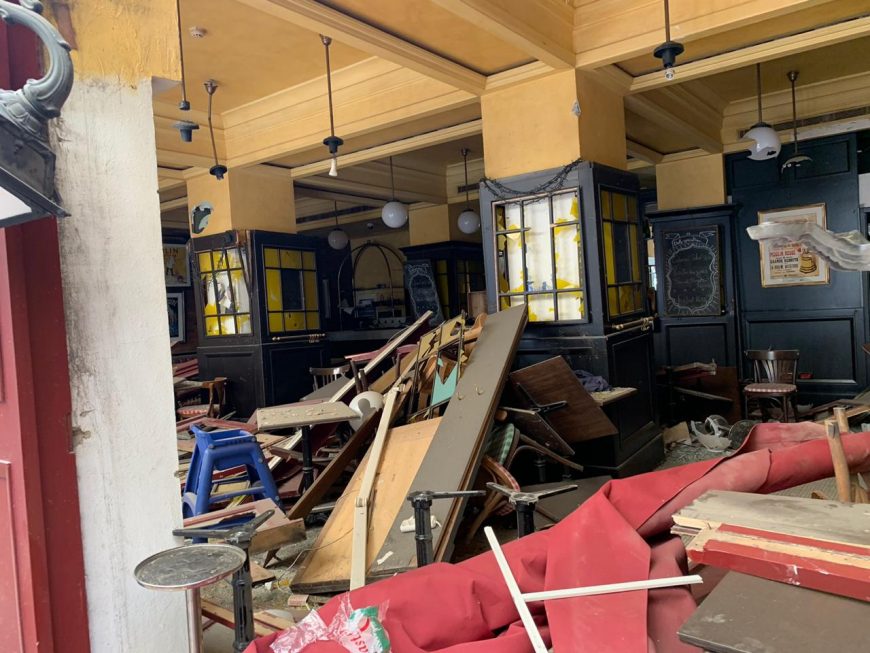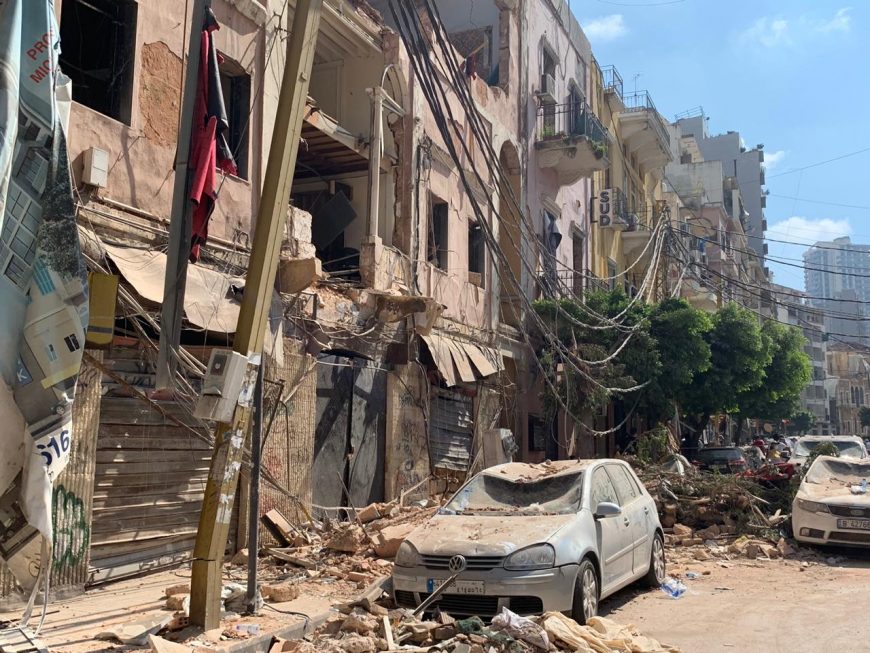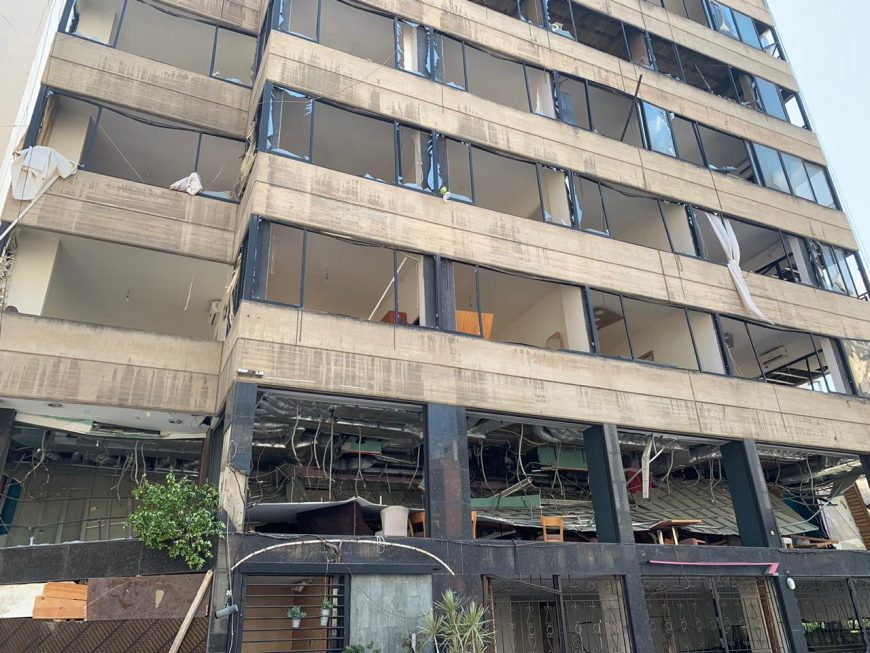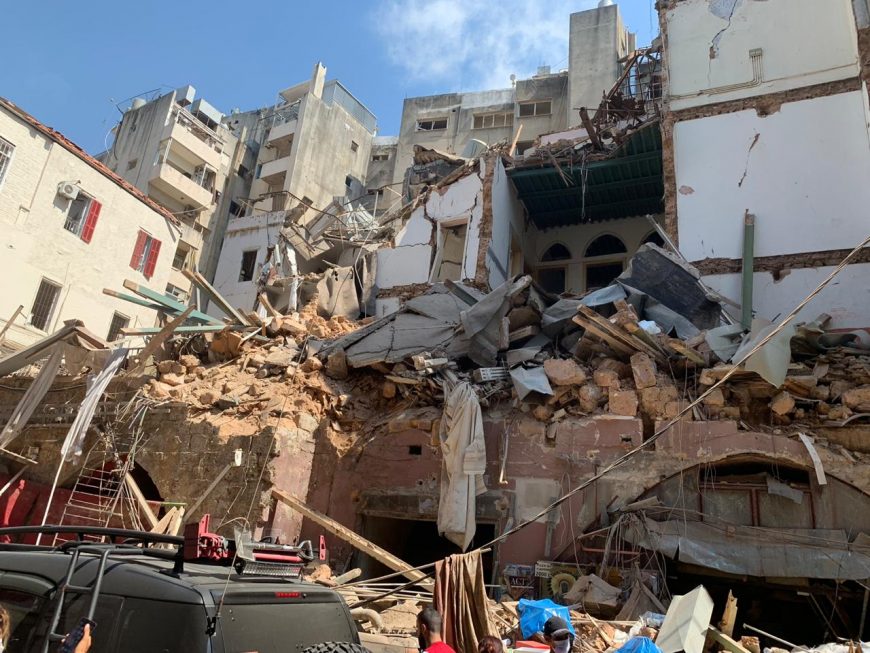Donate to ACTED’s Lebanon Appeal
At 18:00 on Tuesday 4th August, a devastating explosion tore through the port area of the Lebanese capital Beirut. The number of those killed and injured is likely to mount over the coming days and weeks as hundreds remain missing.
The explosion caused mass structural damage to surrounding buildings, with over 300,000 people made homeless. ACTED estimates 150,000 people are in need of humanitarian assistance as health and public services struggle to respond to the scale of the disaster.
The blast struck Lebanon in its most fragile moment: the last year has seen a slow burning economic crisis turn to hyperinflation. On top of this came the Covid-19 pandemic.
Lebanon, has also come to represent a regional hub for 1.5 million refugees from surrounding conflicts, firstly in the occupied Palestinian Territory (oPT), then more recently Syria. Lebanon remains the country hosting the highest number of refugees per capita in the world, many of whom were affected by Tuesday’s blast. It is these communities who face the highest vulnerability and will need extra support to recover from this latest blow.
ACTED teams have carried out a rapid assessment of the most pressing needs of those affected in the blast. These are:
- Shelter – Those displaced in the explosion need immediate assistance to ensure access to temporary shelter. ACTED engineers are available to support families carrying out their own non-structural repairs.
- Access to Basic Goods – The most vulnerable families need immediate access to cash to ensure they can meet their daily needs. This is especially the case for families with babies. ACTED already has set-up cash transfer mechanism and can immediately launch transfers to the most vulnerable.
- Access to Basic Services – Re-establishing access to water and electricity is essential to support the wider recovery and shelter rehabilitations. ACTED engineering teams are available to assist in the repair works, beginning with key community service providers such as local health clinics and social centers.
- Health / Protection – Ongoing provision of Personal Protective Equipment (PPE), first aid items to treat injuries and medicine for those who have lost access, remain crucial. ACTED staff and social workers, in collaboration with the National Mental Health Program are in place to provide non-clinic mental health psychosocial support to those experiencing trauma.
ACTED’s work in Lebanon began in 2006 and we currently have a team on 60 staff based in Beirut. Through its programming over the past years, ACTED has developed extensive relationships with key local authorities and other critical stakeholders to access the most vulnerable communities in this complex urban environment and has tackled a range of needs in the most critical urban neighbourhoods of Beirut. By building the capacity of local stakeholders from all target communities and placing them at the centre of its response, ACTED aimed to foster a strong sense of ownership for proposed activities, empowering community stakeholders to coordinate assistance provided by community members and humanitarian actors in a consistent and locally-embedded framework, to ensure cost-effective aid delivery and its sustainability.
